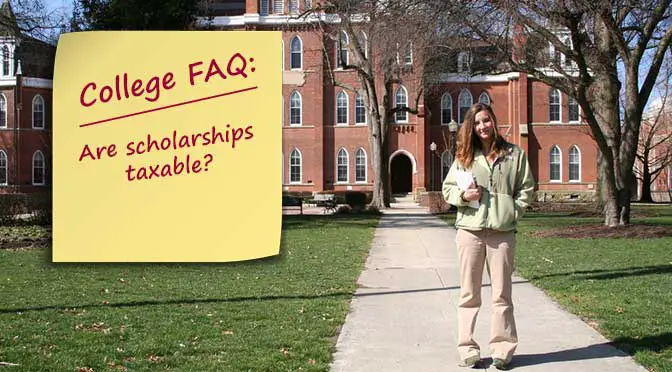 Finally! This is the longest I’ve waited to update my list of 50-50 Colleges. For reasons unknown, the Integrated Postsecondary Education System (IPEDS) only recently released the updated graduation rates although they have been showing up on College Navigator for some time now. I try not to take it personally. So while I’m not quite yet finished updating the DIY College Search Spreadsheet, I have generated the new listing of 50-50 Colleges.
Finally! This is the longest I’ve waited to update my list of 50-50 Colleges. For reasons unknown, the Integrated Postsecondary Education System (IPEDS) only recently released the updated graduation rates although they have been showing up on College Navigator for some time now. I try not to take it personally. So while I’m not quite yet finished updating the DIY College Search Spreadsheet, I have generated the new listing of 50-50 Colleges.
Best and Worst Colleges by State
 Which state has the public research university with the higher 5-year graduation rate, Florida or Wisconsin?
Which state has the public research university with the higher 5-year graduation rate, Florida or Wisconsin?
What are the most expensive private colleges in each state?
Which state’s public university had 20% of undergraduates with PLUS loans, Michigan or Mississippi?
Which private colleges had the highest 4-year graduation rates in Massachusetts and New York?
What Do College Softball Coaches Want-2016
 Three years ago I wrote a post on “What Do College Softball Coaches Want?” and with the new year, I thought I would revisit the topic and see what, if anything, has changed. This time I looked at the recruiting questionnaires of the top 13 D1 softball programs. Why 13 instead of 12 as before? No meaningful reason, I copied one row too many and had already started looking up information by the time I realized it.
Three years ago I wrote a post on “What Do College Softball Coaches Want?” and with the new year, I thought I would revisit the topic and see what, if anything, has changed. This time I looked at the recruiting questionnaires of the top 13 D1 softball programs. Why 13 instead of 12 as before? No meaningful reason, I copied one row too many and had already started looking up information by the time I realized it.
FAQ: How do you get in-state tuition?
 Public colleges and universities charge non-residents higher tuition than in-state residents. Therefore, students who want to attend an out-of-state public university often think they can simply move to the desired state and pay lower tuition.
Public colleges and universities charge non-residents higher tuition than in-state residents. Therefore, students who want to attend an out-of-state public university often think they can simply move to the desired state and pay lower tuition.
It’s generally not that easy. There’s a difference between establishing general residency and residency for tuition purposes. Each state has its own rules for establishing residency for tuition purposes. Students are required to live anywhere from 6 to 24 months before becoming eligible for in-state tuition.
What is financial aid?
ShareTweetFlipEmailPin0 SharesFinancial aid is money students are awarded to pay college. There are two forms of financial aid: gift aid and self-help aid. Gift aid is money that the student doesn’t have to repay. It can take the form of scholarships or grants. Self-help aid is money the student will be responsible for repaying such … Read more
What is the difference between subsidized and unsubsidized loans?
ShareTweetFlipEmailPin0 SharesThere are two types of federal guaranteed student loans: subsidized and unsubsidized. The subsidy refers to the payment of interest while the student is attending school or is in a deferment or grace period. For qualified students, the federal government pays the interest on the loans and therefore “subsidizes” the student loan. Subsidized student … Read more
FAQ: Are scholarships taxable?
 Scholarships are taxable depending on what they are spent on. If you are a degree candidate, the amount of your scholarship that covers tuition and any required fees, books, supplies, and equipment is not taxable. These books, supplies, and equipment have to be required of everyone taking the class in order to qualify. The portion of your scholarship that covers room and board, travel, research, clerical help, and equipment is taxable.
Scholarships are taxable depending on what they are spent on. If you are a degree candidate, the amount of your scholarship that covers tuition and any required fees, books, supplies, and equipment is not taxable. These books, supplies, and equipment have to be required of everyone taking the class in order to qualify. The portion of your scholarship that covers room and board, travel, research, clerical help, and equipment is taxable.
Are there any free SAT/ACT test prep resources?
ShareTweetFlipEmailPin0 SharesThere are a variety of free SAT/ACT test prep resources available. Free Test Prep Number2.com Offers free test prep for both the ACT and SAT. Must register but not many required questions. Will receive emails that track your progress and offers suggestions on what to do next. Provides a review section for each topic … Read more
When do I apply for financial aid?
ShareTweetFlipEmailPin0 SharesThe Free Application for Federal Student Aid (FAFSA) can be filed any time after October 1st of the student’s senior year. You should submit your FAFSA as early as possible since many schools distribute certain types of financial aid on a first come, first served basis. Since the FAFSA requires information from both the … Read more



